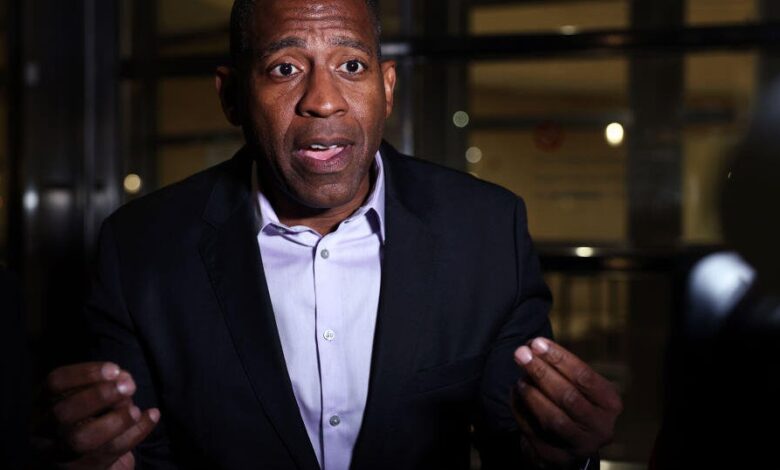Trump commutes sentence of Ozy Media founder Carlos Watson convicted of fraud

President Trump has made another controversial move by commuting the sentence of Ozy Media co-founder Carlos Watson, just before Watson was set to report to prison for a nearly 10-year sentence in a financial conspiracy case. This decision comes as part of a series of acts of clemency revealed by the White House on Friday.
Watson’s case garnered significant attention due to the collapse of Ozy Media, an ambitious startup company that aimed to provide a fresh perspective on politics, culture, and more while amplifying minority voices. The media organization shut down in 2021 following allegations of securities fraud and inflated viewership numbers.
Watson was convicted last year for deceiving investors and lenders by inflating revenue numbers and making false claims about the company’s financial health. He was described by prosecutors as a “con man” who engaged in a pattern of deception to attract investment in the failing company.
Despite his conviction, Watson maintained his innocence and claimed that he was the victim of “selective prosecution.” He referred to the case as a “modern lynching” and expressed remorse for the harm caused but maintained that he did not receive a fair trial.
The commutation of Watson’s sentence by President Trump is part of a broader trend of the president using his executive power to grant clemency to individuals he believes were treated unfairly by the justice system. This includes pardons for individuals like Trevor Milton, the founder of Nikola, and the entrepreneurs behind the cryptocurrency exchange BITMEX.
Watson’s background includes degrees from Harvard University and Stanford Law School, as well as a successful career on Wall Street and in media. Ozy Media was his second startup venture, following the sale of a test-prep company he founded in his 20s. The company produced a variety of content, including TV shows, newsletters, podcasts, and a music festival.
Despite outward signs of success, Ozy Media struggled financially and resorted to deceptive practices to attract investment and stay afloat. Former employees testified about the company’s financial difficulties, including late payroll, rent payments, and inflated revenue numbers provided to investors.
The commutation of Watson’s sentence raises questions about the use of presidential clemency and the implications for individuals convicted of white-collar crimes. It also highlights the challenges faced by minority entrepreneurs in the media industry and the consequences of financial misconduct in the startup world.




